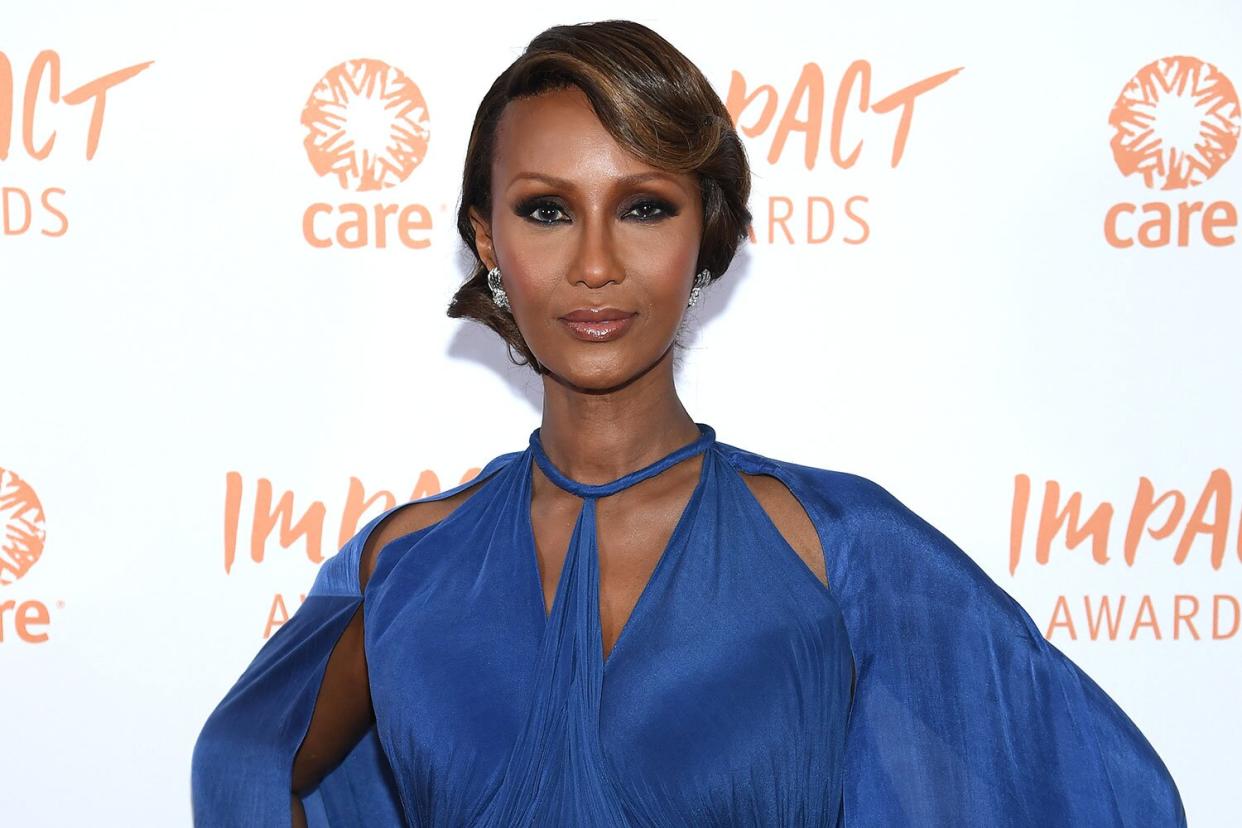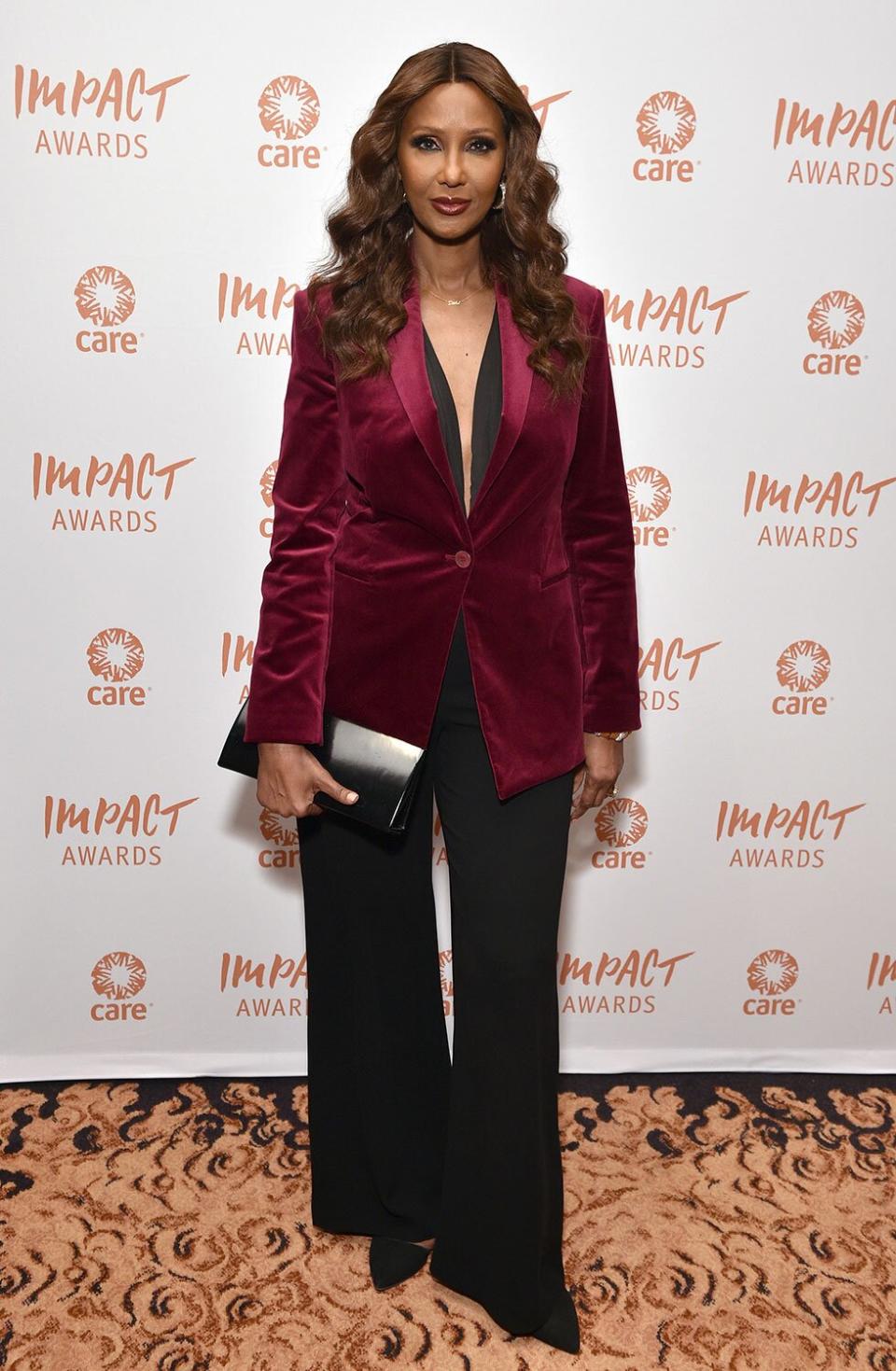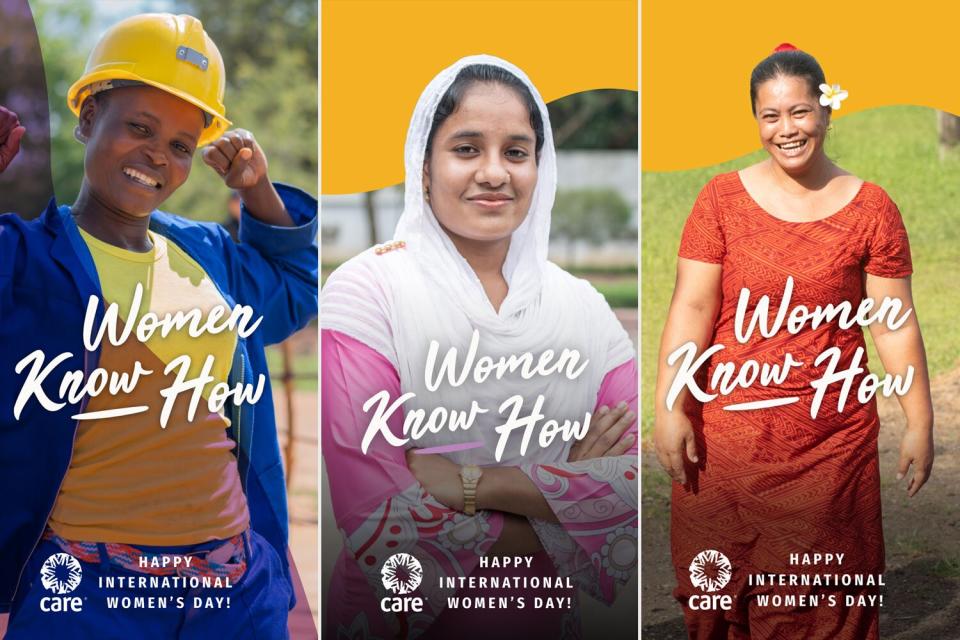Iman Lends Her Voice to CARE's #WomenKnowHow Campaign For International Women's Day

Dimitrios Kambouris/Getty
This International Women's Day, supermodel Iman is lending her voice and her platform to a humanitarian organization she cherishes — CARE — which works to fight global poverty and achieve social justice by empowering women and girls.
For Iman, who has been associated with organizations such as Keep a Child Alive, Champions for Children and the American Foundation for AIDS Research, partnering with CARE was a natural next step. The Somalia-native was named Global CARE Advocate in 2019. It was role that was created specifically for her.
"Since I arrived in America in 1975, I have been involved with or helped different philanthropic and humanitarian organizations. But I've never been affiliated to one specifically," she told PEOPLE.
"I had been in search of the right one [when] CARE came onto my radar. They are the pioneer of humanitarian organizations — we're talking about in World War II. They've been at this longer than anybody else," she explained.
But CARE's impressive history wasn't the only factor that attracted Iman to the organization. Their efforts to empower women and girls was a big draw to the 67-year-old fashion legend, who's been a champion for female empowerment her entire career.
"What touched me most was what they do for women and girls across the world. That resonated with me. Being a refugee myself, I knew what non-government organizations on the ground do."

Bryan Bedder/Getty
Born Iman Mohamed Abdulmajid in Mogadishu in 1955, Iman became a refugee at 16 years old after there was a coup in Somalia. Her father, an ambassador, immediately became a target and the family had to leave their homeland.
"My family left in the middle of the night, with just the clothes on our backs, and crossed the border from Somalia to Kenya," she told PEOPLE in 2020. "My father was a diplomat, and people who worked for the government were being executed or put in jail. I was a [teenager] who'd never been on her own and never worked. All of a sudden, I was without my family and on my own in a foreign country."
Life experience would ignite her passion for activism. "If organizations [such as CARE) weren't there, I wouldn't be here. I would have been trafficked, sexually abused, raped," she stated.
RELATED: Iman Opens Up About Fighting for Black Models to Get Equal Pay Early in Her Career
CARE also works to dispel the notion that poverty and inequality are problems that plague one specific group of people or continent.
"As I follow everybody's [stories] it's highlighted to me that the word 'refugee' feels different to different parts of the west," Iman says. "In America, mostly people think of it like it's [unique] to a Third World country, or maybe nowadays Middle East. But then [the war in] Ukraine happened."
She continued, "CARE was giving packages to Europe when Europe was bombarded to the ground. So the point is that what humans go through, the things we have in common, are borderless. Poverty doesn't have borders, it doesn't have color. It could happen to any one of us at any given time."
For International Women's Day this year, CARE has launched the #WomenKnowHow campaign, which highlights women from across the globe who have found a way to better their communities against all odds.
In an effort to create more visibility and awareness, Iman is voicing the campaign's flagship video which "highlights the fearless leaders, future entrepreneurs and feminist changemakers who know better than anyone how to lead and achieve success, despite all of the obstacles the world throws at them," the organization states.
RELATED: Iman Shares Her Refreshing Outlook on Aging: 'I Come from Africa, We Celebrate Getting Older'
Featured in the campaign are women such as Ra'edah Abu Alhalaweh who took on plumbing in her hometown of Zarqa, Jordan, helping women feel safe and comfortable, since inviting men into their homes—especially when their husbands aren't present—can be uncomfortable.
Alhalaweh's initiative has encouraged other women in her community to take on the trade and she even trains some of them herself.
"And that's all you need to see, is one woman doing it differently," Iman emphasized. "It takes one woman to make something different, that all the girls look at it and they say, 'Oh, that can be done?'"

care(3)
In addition to the online campaign, CARE is also hosting a lobby day on Capitol Hill in Washington, D.C. today. The goal is to "address rising humanitarian needs and preventing irreparable backsliding on global development by providing at least $72.9 billion for the FY24 State and Foreign Operations Appropriations Account and $400 million for the Gender Equity and Equality Action Fund," the organization stated.
"This is a globe. This is not the story of one, it's the universal 'we.' Empowering women and girls, is not a story of one place and it's not a story from a Third World country, it also happens in super power countries," Iman reiterated.
"Poverty, again, does not have boundaries. Women and girls' issues have no boundaries. You have it in this country—they can be sexually abused, trafficked, [subjected to] domestic violence. It's the same. It's not one or the other."

